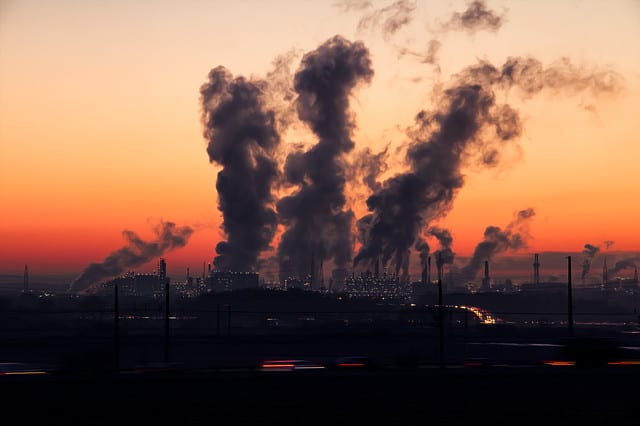
Yom Kippur 5780
An Invitation by Leah Palmer, Hakhel Administrative Director

The “ashamnu” prayer from the Ashkenazic Yom Kippur service is once of the most iconic moments of the High Holiday prayers. The congregation stands in silence, beating their chests in regret for a list of sins which appear in the book in front of them. A list canonized several centuries ago. A list containing a number of words I’d need to look up in a dictionary- which themselves are a translation of Hebrew words normally considered to be synonyms of each other.
Many a rabbi has explained that even if you personally have not committed each of these sins (personally, I’ve not spent a lot of time trespassing this last year, but that’s just me), we are repenting for the Jewish people as a whole. Whilst this is a nice explanation, I know that I’m far from perfect, and would like to spend some time on Yom Kippur repenting for the things that I actually have done.
Whilst reading this prayer in preparation of Yom Kippur I was surprised to find myself relating line after line to by regrets over my poor stewardship of the environment, so I started keeping track of these ideas alongside the original prayer. I’ve printed this out and have tucked it in my Machzor for Yom Kippur in the hope that it will make this part of the service more meaningful for me. If you connect to these ideas, I invite you to do the same.
(Thank you to The Metsudah Machzor, via Sefaria, for the Hebrew and transliterated text).
אָשַֽׁמְנוּ.
ah-sham-noo
We have sinned against man and God, we have trespassed onto land which is not rightfully ours and stolen from it its beauty and its goodness.
בָּגַֽדְנוּ.
bah-gahd-noo
We have betrayed God and man by not recognizing the good in the natural world and the need to preserve its grandeur, instead destroying it as if only we are of importance. We have actively destroyed His creations by driving thousands of species of animals, insects and plants to extinction every single week. If we could just stop this devastation this week, and not next week, the life salvaged would be immeasurable. And yet we continue with no end to the destruction in sight.
גָּזַֽלְנוּ. דִּבַּֽרְנוּ דֹּֽפִי.
gah-zahl-noo
We have stolen from future generations by devouring resources that will never be restored. And we have slandered those that accused us of this. We know that no generation after us will allow themselves to consume resources in the way that we do, or to produce waste on the scale that we do, and yet we continue to do so without any thought. Not because we are more deserving than they are, but because we less directly suffer the consequences of our behavior than they will.
הֶעֱוִֽינוּ.
heh-eh-vee-noo
We have caused others to sin by creating a warped societal norm where unsustainable consumer habits are the only acceptable option, and not sufficiently supporting those trying to lead a more sustainable lifestyle.
וְהִרְשַֽׁעְנוּ.
vih-heer-shah-noo
We have caused others to commit sins for which they are called רְשָׁעִים, wicked, by drawing arbitrary lines between acceptable consumption of resources and gluttony. We must realize that we are in fact on the wrong side of a very real line.
זַֽדְנוּ.
zahd-noo
We have sinned with malicious intent, knowing that what we were doing was wrong, but pretending not to know, acting as if we are too busy to care, having the arrogance to think that our Western wealth will protect us from the consequences of our actions.
חָמַֽסְנוּ.
chah-mahss-noo
We have forcibly taken others’ possessions through extortion, unfair trade and labor practices and through child labor. We have not been conscious enough of buying only ethically sourced products and not given the time to take a stand about corporations with such practices.
טָפַֽלְנוּ שֶֽׁקֶר.
tah-fahl-noo sheh-kehr
We have added falsehood upon falsehood to justify ourselves; We have joined with evil individuals or groups as they make claims that we know not to be true. We have not been sufficiently vocal in our support of those speaking the truth about climate change and the human impact on our planet.
יָעַֽצְנוּ רָע.
ya’atznoo rah
We have given harmful advice by advising friends and family to act in our best interests but against the interests of mankind as a whole by protecting our planet from additional damage.
כִּזַּֽבְנוּ. לַֽצְנוּ.
kee-zahv-noo lahtz-noo
We have deceived others by making greening pledges and not keeping to them; we have mocked others who have kept to them, or committed to actions that we consider too extreme, whilst internally knowing that they are doing the right thing.
מָרַֽדְנוּ.
mah-rahd-noo
We have rebelled against God by not being the Stewards of the earth that we were commanded to be. We have actively destroyed sites of natural beauty and some of our planet’s most awe-inspiring sights.
נִאַֽצְנוּ.
nee-ahtz-noo
We have caused God to be angry with us by showing disrespect for His creations, by causing a loss of biodiversity and feeling no remorse at the destruction of animal habitats for the convenience of an urban planner.
סָרַֽרְנוּ.
sah-rahr-noo
We have turned away from God’s commands to be mindful and not destructive, we have not used His teachings to lift ourselves about the rat race of 21st century living.
עָוִֽינוּ.
ah-vee-noo
We have sinned deliberately by refusing to walk gently on the earth, we have chosen the easy option when we know that the right thing to do is harder, and later claimed that we didn’t even believe it to be possible.
פָּשַֽׁעְנוּ.
pah-shah-noo
We have been negligent in our performance of our responsibilities as a developed nation to help other nations develop in a sustainable way, whilst curbing our own emissions.
צָרַֽרְנוּ.
tzah-rahr-noo
We have caused mankind grief due to extreme weather destroying their homes and possessions. And we have lacked conviction in our claims that the weather is influenced by man.
קִשִּֽׁינוּ עֹֽרֶף.
kee-shee-noo oh-rehff
We have been stiff-necked, refusing to admit that our suffering is caused by our own sins despite that all the evidence we could ask for leads us to this conclusion.
רָשַֽׁעְנוּ.
rah-shah-noo
We have committed sins for which we are called רָשָׁע, wicked, as our actions directly cause other people and animals pain. We consume meat without considering the cost beyond the dollars we shell out at the grocery store.
שִׁחַֽתְנוּ.
shee-chaht-noo
We have committed sins which are the result of moral corruption. We have elected leaders who voice views on climate change are reversing previous progress which we ourselves worked hard for, just because their other policies benefit us in the short term.
תִּעַֽבְנוּ.
tee-ahv-noo
We have given in to our most basic desires, ignoring the knowledge that certain foods and lifestyle choices are simply unethical.
תָּעִֽינוּ.
tah-ee-noo
We have gone off the path which we ourselves believe in, unable to keep to what we promised ourselves that we would do.
תִּעְתָּֽעְנוּ:
teeht-ah-noo
We had the chance to influence others for better this year, but we missed that opportunity by not being the personal example we could have been.
Learn more about Hakhel – the first-of-its-kind Jewish Intentional Communities Incubator

